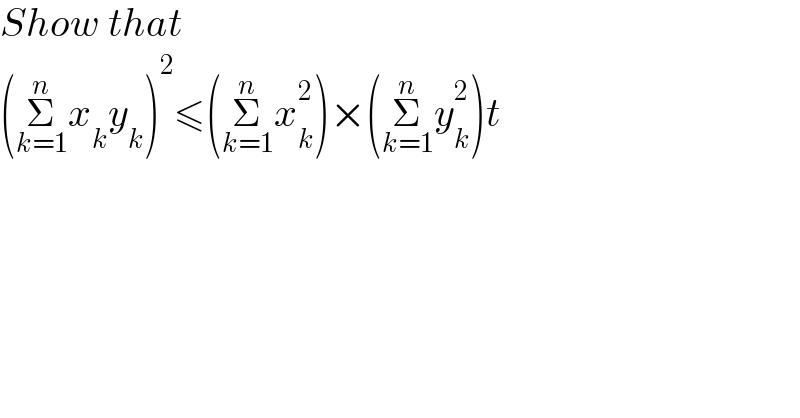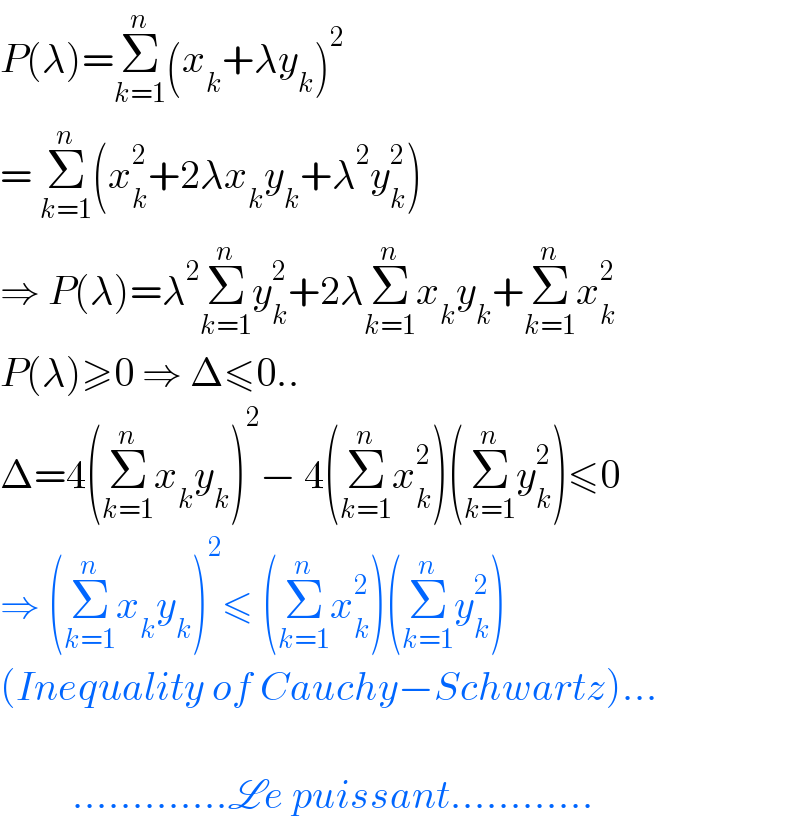
Question and Answers Forum
Question Number 156691 by mathocean1 last updated on 14/Oct/21

Answered by puissant last updated on 14/Oct/21

Commented by mathocean1 last updated on 22/Oct/21

| ||
Question and Answers Forum | ||
Question Number 156691 by mathocean1 last updated on 14/Oct/21 | ||
 | ||
Answered by puissant last updated on 14/Oct/21 | ||
 | ||
| ||
Commented by mathocean1 last updated on 22/Oct/21 | ||
 | ||